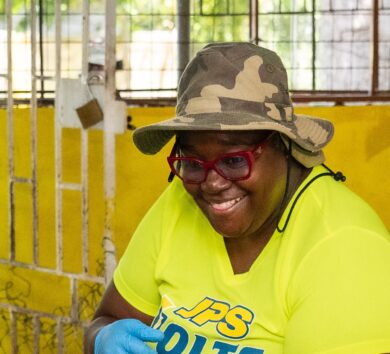

As Jamaica grapples with an outbreak of dengue fever with more than 500 confirmed cases across the island, there are several steps that individuals can take to aid in a smooth recovery from the viral infection.
The World Health Organization (WHO) defines dengue as a viral infection caused by the dengue virus (DENV) transmitted to humans through the bite of infected mosquitos. The dengue virus has four strains and is contracted through the bite of a female Aedes agypti mosquito.
Dengue fever can be classified into two categories: mild and severe. Mild dengue cause severe fever and causes individuals to have flu-like symptoms, while severe dengue may result in bleeding and a drop in blood pressure.
It is recommended that individuals who display either the symptoms of mild or severe dengue visit their nearest healthcare location to receive an accurate diagnosis and treatment, instead of self-treating at home.
Our Today has researched and compiled a list of steps that persons who are recovering from dengue can take to aid in their recovery.
Hydrate

An essential part of the recovery process from the viral infection is hydration. Dehydration is not uncommon for persons with dengue fever, especially those with severe dengue as a result of high fever or poor intake of liquids due to vomiting and nausea.
It is recommended that persons recovering from dengue fever increase their intake of water and liquids that are high in electrolytes, such as coconut water or fruits high in water content. Persons should avoid coffee, alcohol, or soft drinks that may result in dehydration.
Get adequate rest

Some persons who experience dengue fever experience tiredness, joint pain, and severe headache during the early stages of contracting the viral infection. Getting adequate rest is also an important part of helping the body to get back to its normal state.
Minimise symptoms

While many people who contract the dengue virus do not have symptoms, there are some common warning signs that individuals should look out for that may be linked to the virus. These include severe headache, severe fever, muscle and joint pain, and pain behind the eyes.
It is recommended that persons take the necessary steps to manage these symptoms, which include getting enough sleep, hydration, and taking paracetamol.
Avoid non-steroidal anti-inflammatory drugs

Persons who are recovering from dengue fever are urged not to take non-steroidal anti-inflammatory drugs such as aspirin, ibuprofen, and naproxen, which pose possible risks of increased bleeding.
It is recommended that persons speak to their healthcare provider about the symptoms they are experiencing to determine the type of medication suitable to relieve those symptoms.
As the country continues to navigate the current dengue outbreak, persons are encouraged to take the necessary measures to protect themselves and their families from contracting the virus.







Comments